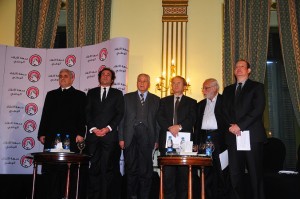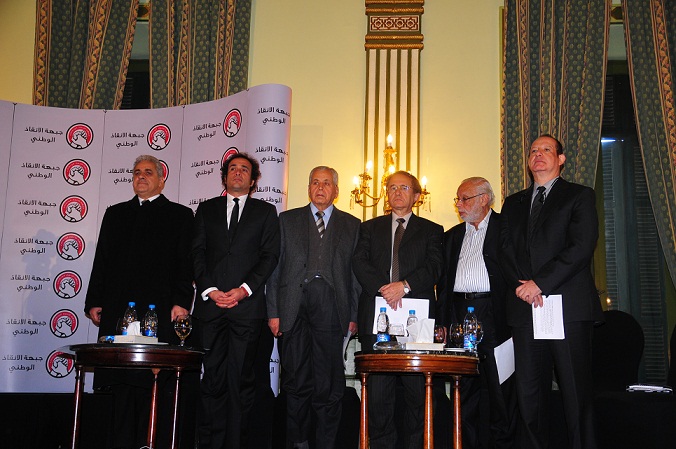
(DNE/ Hassan Ibrahim)
The National Salvation Front will only contest the upcoming parliamentary elections if their demands regarding the elections law are met.
In a statement released Friday morning the NSF outlined the 10 points it demands be included in the parliamentary elections law in order for its candidates to contest the elections.
The group demands that electoral districts should be redrawn when it comes to the two thirds of seats allocated to party lists, so that parties run only one list in each governorate—except in the five most populous governorates which should have two lists.
Each ballot box should have only 500 registered voters allotted to it and the elections ought to take place over one day only, the statement added.
The NSF also demand that the Supreme Electoral Committee must be responsible for the entire electoral process and that it have offices in all governorates. The front also favour the adoption of a formal complaint system.
The coalition want the election law to include details of all the paperwork a candidate needs to submit and it should specify exactly what constitutes a worker or farmer, to ensure the fair contestation of seats reserved for workers and farmers.
The role of civil society organisations in monitoring the elections should be protected in the law and these organisations must be allowed to participate in the Supreme Electoral Committee’s subcommittees. The law should also organise the application procedures for monitoring licences.
The NSF also calls for the prohibition of campaigning in houses of worship and a ban on sectarian or hate speech with penalties for those who break these rules. There should be a cap on funding as well as procedures for monitoring sources of funding. The group also
require that there should be at least one woman present in every three names on a party list.
Finally, for the one third of seats reserved for individual candidates, the candidate with most votes should win the seat even if they do not garner a majority of votes—as opposed to the old system, which included a second round of voting between the top two
candidates if no candidate held a majority.
The front signalled its willingness to participate in dialogue on these terms and reaffirmed its stance on the constitution, saying it will pursue all peaceful methods to bring it down.



